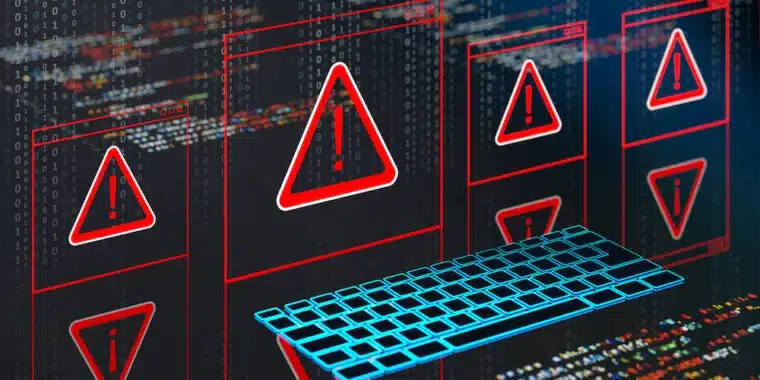If you experience any difficulty in accessing content on our website, please contact us at 1-866-333-8917 or email us at support@chicagovps.net and we will make every effort to assist you.

Jul 2, 2024 7:03 pm UTC
Researchers have warned of a critical vulnerability affecting the OpenSSH networking utility that can be exploited to give attackers complete control of Linux and Unix servers with no authentication required.
The vulnerability, tracked as CVE-2024-6387, allows unauthenticated remote code execution with root system rights on Linux systems that are based on glibc, an open source implementation of the C standard library. The vulnerability is the result of a code regression introduced in 2020 that reintroduced CVE-2006-5051, a vulnerability that was fixed in 2006. With thousands, if not millions, of vulnerable servers populating the Internet, this latest vulnerability could pose a significant risk.
“This vulnerability, if exploited, could lead to full system compromise where an attacker can execute arbitrary code with the highest privileges, resulting in a complete system takeover, installation of malware, data manipulation, and the creation of backdoors for persistent access,” wrote Bharat Jogi, the senior director of threat research at Qualys, the security firm that discovered it. “It could facilitate network propagation, allowing attackers to use a compromised system as a foothold to traverse and exploit other vulnerable systems within the organization.”
The risk is in part driven by the central role OpenSSH plays in virtually every internal network connected to the Internet. It provides a channel for administrators to connect to protected devices remotely or from one device to another inside the network. The ability for OpenSSH to support multiple strong encryption protocols, its integration into virtually all modern operating systems, and its location at the very perimeter of networks further drive its popularity.
Besides the ubiquity of vulnerable servers populating the Internet, CVE-2024-6387 also provides a potent means for executing malicious code stems with the highest privileges, with no authentication required. The flaw stems from faulty management of the signal handler, a component in glibc for responding to potentially serious events such as division-by-zero attempts. When a client device initiates a connection but doesn’t successfully authenticate itself within an allotted time (120 seconds by default), vulnerable OpenSSH systems call what’s known as a SIGALRM handler asynchronously. The flaw resides in sshd, the main OpenSSH engine. Qualys has named the vulnerability regreSSHion.
The severity of the threat posed by exploitation is significant, but various factors are likely to prevent it from being mass exploited, security experts said. For one, the attack can take as long as eight hours to complete and require as many as 10,000 authentication steps, Stan Kaminsky, a researcher at security firm Kaspersky, said. The delay results from a defense known as address space layout randomization, which changes the memory addresses where executable code is stored to thwart attempts to run malicious payloads.
Other limitations apply. Attackers must also know the specific OS running on each targeted server. So far, no one has found a way to exploit 64-bit systems since the number of available memory addresses is exponentially higher than those available for 32-bit systems. Further mitigating the chances of success, denial-of-service attacks that limit the number of connection requests coming into a vulnerable system will prevent exploitation attempts from succeeding.
All of those limitations will likely prevent CVE-2024-6387 from being mass exploited, researchers said, but there’s still the risk of targeted attacks that pepper a specific network of interest with authentication attempts over a matter of days until allowing code execution. To cover their tracks, attackers could spread requests through a large number of IP addresses in a fashion similar to password-spraying attacks. In this way, attackers could target a handful of vulnerable networks until one or more of the attempts succeeded.
The vulnerability affects the following:
Anyone running a vulnerable version should update as soon as practicable.
ChicagoVPS is your gateway to unparalleled hosting solutions. Our state-of-the-art datacenters and powerful network ensures lightning-fast speeds and uninterrupted connectivity for your websites and applications. Whether you’re a startup looking for scalable resources or an enterprise in need of enterprise-grade hosting, our range of plans and customizable solutions guarantee a perfect fit. Trust in ChicagoVPS to deliver excellence, combining unmatched reliability and top-tier support.
For Inquiries or to receive a personalized quote, please reach out to us through our contact form here or email us at sales@chicagovps.net.
